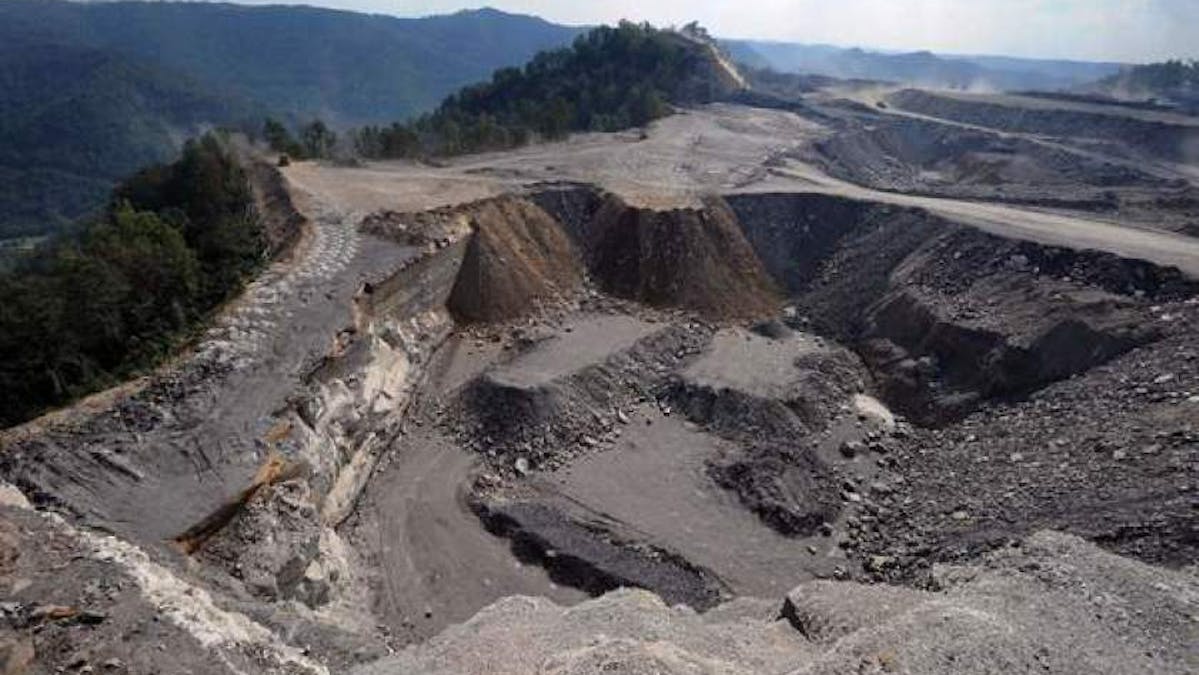Coal accounts for 14% of the energy used in America. However, its use was steadily declining until President Trump was elected in 2016, promising, among other things, to “bring back coal!”
And his love affair with coal and other fossil fuels has paid off, particularly since the pandemic, as his administration has favored the industry with subsidies deemed “necessary” for the economic recovery..
Nearly 5,000 fossil fuel companies received between $2.5 billion and $6 billion in Paycheck Protection Program loans — loans meant to help small businesses survive the downturn, according to a 2020 review in the Indianapolis Star newspaper.. Over 400 fossil fuel companies were among the top recipients, with each receiving at least $2 million. While some of these companies are small enough to be eligible for PPP loans, they are all in environmentally destructive businesses. We should not be subsidizing coal, oil, and gas!
White Stallion Energy, a coal-mining company in Indiana, received between $5 million and $10 million. This is the same White Stallion Energy that gave $175,000 to Trump’s inaugural committee. Dozens of other coal companies gave as well in their bid to save the industry under the Trump Administration.
Even before Trump took office, coal operators had become increasingly reliant on government support. Here are some of the subsidies they received from 2011-2018:
- In 2011, Ector County, Texas, granted Summit Power $91 million in property tax abatements, amounting to 10 years of 100% property tax relief, for a carbon capture coal gasification plant. These abatements were specific to Summit. In exchange, taxpayers were promised 100 local jobs—an almost laughable trade-off
- In 2014, Marissa, Illinois, granted Prairie State Generating a cash subsidy of $6 million to build a storage facility to store the byproducts of coal production
And the List of Coal Subsidies Goes On
In 2017, the Export-Import Bank gave preferential rate loans to Pennsylvania’s XCoal Energy and Resources, plus $22 million in export guarantees. (The coal was to be exported to the Ukraine.)
Alpha Natural Resources, headquartered in Tennessee, was once the largest publicly traded coal company in the United States. Between 2000 and 2018, it received $3.3 million in state and local subsidies. After filing for bankruptcy in 2015, it reorganized and became a private company, with 2016 revenue of $3 billion.
During Alpha’s bankruptcy proceedings, CEO Kevin Crutchfield wept on national television, describing his sadness over the loss of his employees’ livelihood. Unbeknownst to those employees, Crutchfield was simultaneously arranging with the bankruptcy court to cut health and life insurance benefits for 1,200 of Alpha’s non-union employees.
And the company was taking steps to ensure that Crutchfield and the top 15 executives at Alpha would share $12 million in bonuses.
Missouri’s Arch Coal also declared bankruptcy in 2016, shortchanging investors before emerging under new ownership later that year. Arch Coal’s revenue in 2017 was $2.32 billion, and it received close to $10 million in state and local subsidies before its strategic bankruptcy.
Ironically, this amount does not even cover the cost of the 684 penalties Arch incurred during the same period, including over $8 million in environmental penalties and another $8 million in workplace safety violations. The bankruptcy let Arch duck its responsibility for these fines.
Arch Coal is best known for mountaintop removal mining, described in a 2016 PBS special as “...the practice of blasting off the tops of mountains...Coal mining companies dump the mountaintops into nearby valleys and streams...converting mountain landscapes covered in hardwood forests into fields of sparse grass.” In 2017, Arch Coal spent about $500,000 on lobbying, and Arch CEO John Eaves earned a cool $10 million.
Peabody is the largest private coal company in the world, with revenue of $5.6 billion in 2017. Peabody has benefitted from $275 million in state and federal subsidies, mostly since 2010. The company may be best known for the rigidity of its climate-change-denial stance. Nick Surgey, with the Center for Media and Democracy, notes that “Peabody is the treasury for a very substantial part of the climate denial movement.” Peabody too declared bankruptcy in 2016, but is since back in business. CEO Glenn Kellow earned $21 million in 2017.
If coal wants to stay in business, the industry should have to do so on its own — not with taxpayer assistance, not while making massive campaign contributions, and not while showering CEOs with outlandish compensation packages.
The majority of Americans are opposed to the use of coal as an energy source. Let’s stop sustaining the companies that produce it.
